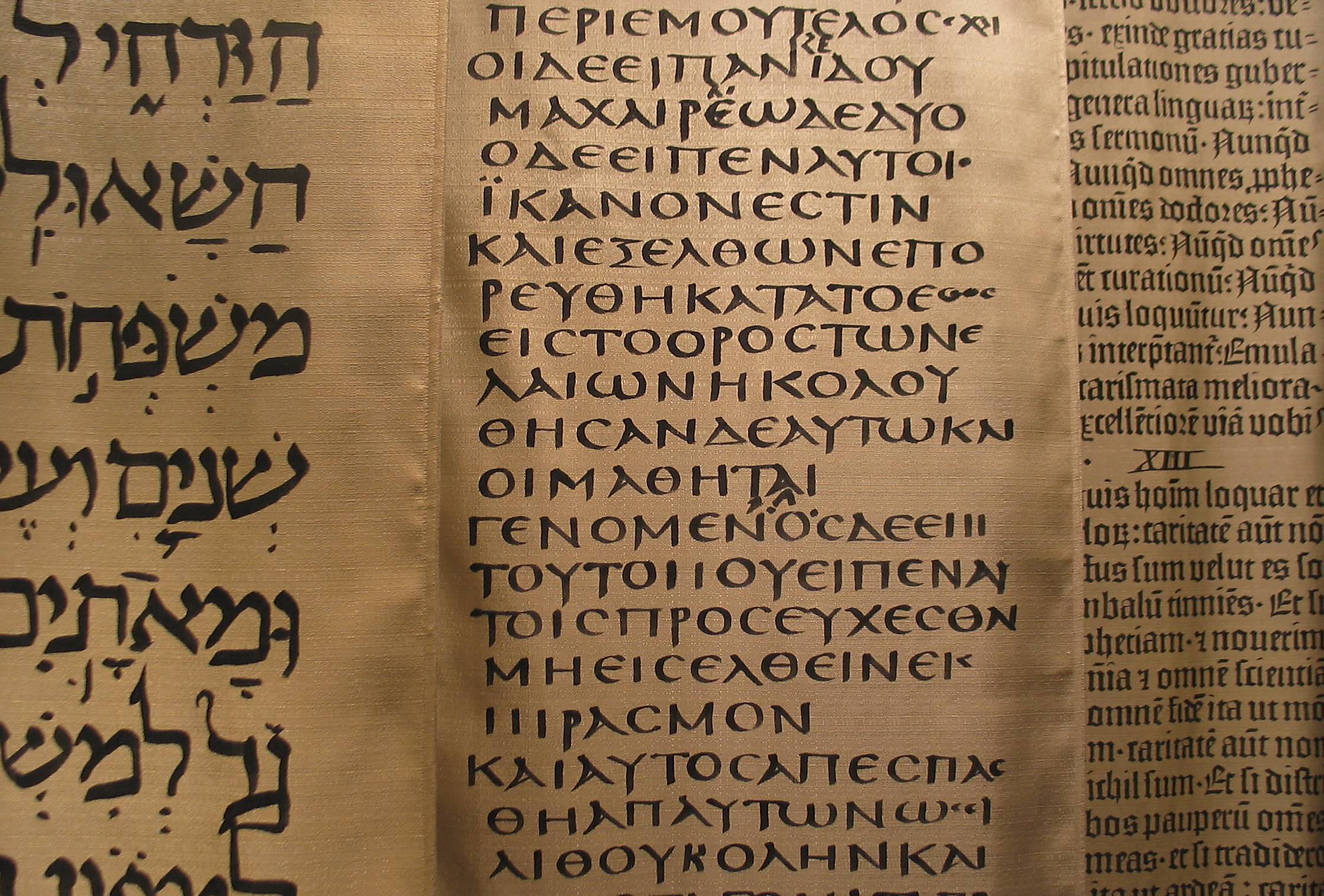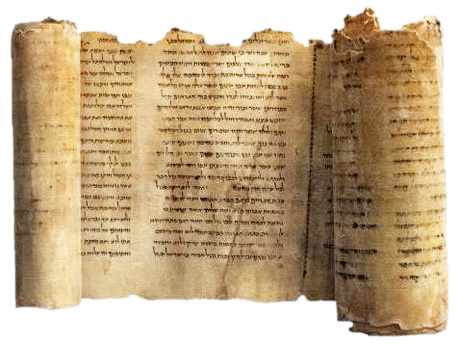The Septuagint, also known as LXX, is a Greek translation of the Old Testament. In some places, it acts even as an interpretive tool, such as the shortening of Job by 1/6th of it’s size in the Masoretic Text (MT) and a number of passages that appear differently in the Greek than in the Hebrew manuscripts. It was also an important tool in the formation of the New Testament, as many NT author quote from the LXX when quoting the OT.
About the Title: “Septuagint”
The name Septuagint is Latin for 70 which is where the moniker LXX comes from which is 70 in Roman numerals. The reference to 70 is a reference to the number of translators who translated the Hebrew texts into Greek (sort of). According to Jewish and Greek tradition, it was 72.
Greek was the language of the Mediterranean even after the Roman empire overtook the Greeks about 146 BCE. The translation, however, was completed before the defeat of the Greeks by the Romans. The translation was likely done in Alexandria, Egypt, where a large portion of Jews were captive by the Ptolemies. It would have likely been added to the Alexandrian Library as well, since tradition holds that the translation was at the behest of the cheif librarian.
According to tradition, the LXX was actually translated by 72 translators, 6 from each tribe of Israel. This tradition is recorded in the The Letter of Aristeas, and affirmed by the Jewish historian Josephus. Josephus refers to the letter as the Letter to Philocrates on a number of accounts. Josephus also confirms the legend that the 72 interpreters finished the translation in 72 days. According to Josephus, the translation of the Hebrew manuscripts into Greek was at the behest of their Greek over-lords, who wanted to collect as much as they could from the Jews, for placement in the famous Alexandrian Library.
he (Ptolemy II Philadelphus) did not obtain all our writings at that time; but those
who were sent to Alexandria as interpreters, gave him only the
books of the law, while there were a vast number of other matters
in our sacred books.
(Antiquities preface, verse 3)But in the morning they came to the court and saluted
Ptolemy, and then went away to their former place, where, when
they had washed their hands, (10) and purified themselves, they
betook themselves to the interpretation of the laws. Now when the
law was transcribed, and the labor of interpretation was over,
which came to its conclusion in seventy-two days
(Antiquities Book 12, chapter 2, verses 9-10)
For more on this matter, I would recommend obtaining Josephus’ Antiquities of the Jews, by clicking the link or by visiting our free downloads page, and reading book 12.
Origin of the Septuagint
As mentioned previously, the translation from Hebrew into Greek was initially a demand by the Greek ruling class, not the Greek speaking Jews. However, as time would go on, the Greek speaking Jews would eventually adopt the Septuagint as the OT version of choice.
The initial idea for the Septuagint (according to legend) actually goes back to a man named Aristeas. Aristeas was allegedly an advisor of Ptolemy II Philadelphus(281-246 BCE). The letter that is ascribed to Aristeas is quoted not only by Josephus but By Philo of Alexandria (c. 15 CE), in Life of Moses, and in an excerpt from Aristobulus of Paneas (c. 160 BC). It is fair to say that even if the letter of Aristeas is not a truthful account, many people of the 1st century believed it to be true.
In the letter Aristeas, the author tells of how the king of Egypt (Ptolemy II) is urged by the chief librarian of the Alexandrian Library to have the Hebrew Law translated into Greek so that the sacred text and knowledge of the Jews could reside in the library.
According to the letter, the king gives freedom to Jews who had been taken into captivity by his predecessors, and sending lavish gifts to the Temple in Jerusalem. The high priest then chose six men from each of the twelve tribes, giving 72 in all.
When the translators (or “interpreters”) arrive in Alexandria the king weeps for joy and for the next seven days challenges the interpreters with a range of philosophical inquires, which are recorded and answered in the letter. The 72 translators being their work thereafter and complete the translation 72 days. The Jews residing in Alexandria, once completed, request copies and according to the legend, lay a curse on anyone who would change the translation. The 72 interpreters then return home with the blessing and gifts of the king.
This is the basic outline of the tradition surrounding the translation of the Hebrew texts into Greek.
Why the Septuagint is a Big Deal
In scholarly circles and more in-depth Bible studies, the Septuagint will be a frequent reference because the NT quotes from it often. This is sometimes problematic because as NT believers we would tend to believe that when the NT quotes the OT that it would be precise and that it would be done using the original Hebrew. However, this is not the case. Most NT quotes of the OT appear to be from the Greek Septuagint.
Most Bible believing Christians must now expect that the Septuagint translation is inerrant, because if it’s not then that means the NT quotes of the OT are not correct. This means the Bible as we know it is no longer inerrant. For biblical inerrantists, this is a problem. For all others it’s is the price of humans doing God’s work.
The second problem with the Septuagint is that it simply does not match the Masoretic Texts at all in some places. This is a problem for OT translations into Enlgish. It means that English translators are forced to choose between various versions of the OT (Greek, Hebrew, Syriac, or various Coptic texts). Since they do not all agree, it’s a long painful task in getting the correct version of each passage. Great scholars have worked tirelessly to produce “critical editions” of the OT, which attempt to act as a base for translators. But they are not perfect and the critical editions sometimes alter passages that are near and dear to Christian’s hearts.
This disagreement between the critical editions, which underly our modern translations, and the more traditional texts, have caused huge debates and rifts between traditionalists (KJV-only) and other Christians. Guys like Sam Gipp, Peter Ruckman, Stephen Anderson, Gail Riplinger, and Jack Chick, have made gigantic public arguments over these translation issues. Arguments that have split large factions of believers and pitted them against each other.
That being said, the Septuagint has also been a great source of help for translators and students who want to help understand and preserve the biblical texts, as they were originally created. Any early text or translation that is discovered is beneficial to biblical translations. Discoveries like the Dead Sea Scrolls and the Septuagint are invaluable because they not only help us understand how ancient readers understood the original text but they help us better understand the underlying languages that they are translated from. With every new discovery comes an improved lexicon by which scholars can use to translate with.
The Septuagint also helps us to understand why some of the NT quotes of the OT seem to be very badly quoted. If one takes the time to read the NT quotes of the OT they will realize that some of the quotes are way off. That is because many mordern translations of the OT go back to older Hebrew texts, but the NT authors only had the Septuagint in many cases. Reading the Septuagint helps us to understand how the NT authors viewed many parts of the OT.
Lastly, the Septuagint recorded books from the inter-testamental period. Book such as the Maccabees have proven to quite valuable in understanding history as we see it in the time of Jesus. These books also help us understand what other books would have been considered authoritative in that time. They quote from sources that would have been known to the readers but not included in the biblical texts. Many of these quoted works are in existence and we can go read them and gather a much better understanding of how a 1st or 2nd century (BCE) Jew thought.
Textual Variants
As previously mentioned, the Septuagint and other manuscripts do not always agree. Here are a few examples to give some understanding to the issue.
Masoretic Text |
Qumran (Dead Sea Scrolls) |
Septuagint |
|
|
|
The Septuagint also shortens the story of Job by about 1/6th of the length, leading many to believe that the Hebrew manuscripts for Job that were used by the 72 translators no longer exist or that the translator purposefully removed redundant passages.
In addition, some verses like Psalm 47:10 are completely misunderstood because the Greek and Hebrew idioms don’t match.
“The shields of the earth belong to God.” (Masoretic Text)
“To God are the mighty ones of the earth.” (LXX)
Thus, when translating into English it can be difficult to get the meaning correct. Another passage which got translated poorly was Zechariah 12:10.
“And they shall look upon me whom they have pierced.” (Masoretic Text)
“And they shall look at me against whom they have mockingly danced.” (Septuagint)
Clearly, they are referring to two different things. These types of variants in the texts are difficult to work out but luckily we have other sources to compare to.
How to Get a Copy of the Septuagint in English
Various versions of the Septuagint in English are floating around the web. However, you can download a copy by clicking on the link below and I encourage you to also view our free downloads page.


1 thought on “What is the Septuagint or LXX?”